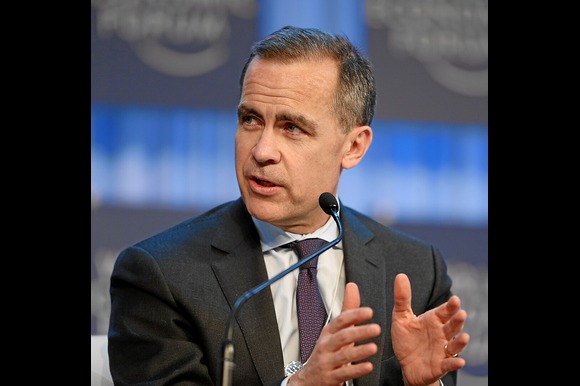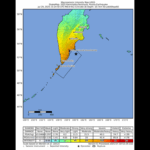Prime Minister Mark Carney has announced that Canada intends to formally recognise a Palestinian state this September, making it the third G7 nation in recent days to signal such a move following similar declarations by the United Kingdom and France.
Speaking at a news conference, Carney said Canada’s recognition would be contingent upon significant democratic reforms by the Palestinian Authority, including the holding of elections in 2026 without the involvement of Hamas.
The decision drew immediate criticism from Israel. Its Ministry of Foreign Affairs called Canada’s announcement “a reward for Hamas,” arguing that it undermines efforts to secure a ceasefire in Gaza and hampers negotiations for the release of hostages. U.S. President Donald Trump also weighed in, warning the move could complicate future trade negotiations with Canada. “That will make it very hard for us to make a Trade Deal with them,” Trump posted on Truth Social.
Despite opposition from key allies, Canada’s decision aligns it with the global majority. As of now, 147 of the United Nations’ 193 member states officially recognise a Palestinian state.
Carney said Canada’s recognition would be formalised at the upcoming UN General Assembly and framed it as a response to ongoing humanitarian and political crises in the region. He cited the rapid expansion of Israeli settlements in the occupied West Bank, the deepening humanitarian catastrophe in Gaza, and the Hamas-led attacks on Israel on 7 October 2023 as key factors in the policy shift.
“This approach is no longer tenable,” Carney said, referencing Canada’s long-standing commitment to a negotiated two-state solution. “The prospect of a Palestinian state is being eroded before our eyes.”
Carney emphasised that statehood recognition would depend on the Palestinian Authority enacting serious governance reforms and pursuing demilitarisation. He said he had spoken with Palestinian Authority President Mahmoud Abbas earlier in the day, outlining the requirements for recognition. The Palestinian Authority, led by Abbas’ Fatah party, governs parts of the West Bank, while Hamas maintains control over the Gaza Strip. No elections have been held in either territory since 2006.
“The level of human suffering in Gaza is intolerable and it is rapidly deteriorating,” Carney added, noting that action was needed to address both the humanitarian crisis and the political stagnation surrounding Palestinian statehood.
The announcement follows similar statements from the UK and France. The UK said it would recognise Palestine in September unless Israel agreed to a ceasefire and other conditions, while France laid out its own recognition framework last week. Should both countries proceed, the United States will stand as the only permanent member of the UN Security Council not recognising Palestinian statehood.
Carney denied that Canada’s decision was influenced by the UK and France or coordinated with the United States. “Canada makes its own foreign policy decisions,” he said, asserting Canadian sovereignty in the matter.
Israel’s reaction was swift and forceful. On X (formerly Twitter), its Foreign Ministry said Canada’s recognition “harms the efforts to achieve a ceasefire in Gaza and a framework for the release of the hostages.”
Domestically, Carney’s announcement faced pushback from the opposition Conservative Party. “Recognising a Palestinian state in the aftermath of the October 7 terrorist atrocities sends the wrong message to the world,” the party said in a written statement.
The issue has stirred significant debate within Canada, where nearly 200 former diplomats and ambassadors signed an open letter urging the government to recognise a Palestinian state. The letter condemned what it called the abandonment of Canada’s principles in light of “massive displacement, indiscriminate bombardment and starvation of Palestinian civilians in Gaza,” as well as “violent attacks by extremist settlers in the West Bank.”
Canada, one of the U.S.’s largest trading partners, is currently in ongoing negotiations with Washington ahead of a Friday deadline when new American tariffs are set to take effect. Trump’s warning about the impact of Canada’s decision on trade has added another layer of complexity to the diplomatic landscape.
While access to media remains severely restricted in Gaza, some Palestinians expressed hope following Canada’s announcement. Gaza-based journalist Imad Abu Shawish shared his reaction on Facebook: “Another slap to Israel – this time from Canada after France and the UK. Every recognition brings us a step closer to our dream of an independent state.”
The Israeli military has maintained a sustained campaign in Gaza since the 7 October 2023 Hamas-led attacks, which killed approximately 1,200 people and resulted in 251 hostages being taken. In the months since, over 60,000 people have reportedly been killed in Gaza, according to the Hamas-run health ministry, which also stated that 154 individuals, including 89 children, have died from malnutrition.
As the humanitarian toll grows and diplomatic stances shift among key global players, Carney’s decision signals a significant recalibration of Canada’s Middle East policy—one that may reshape its relationships on both sides of the conflict.






